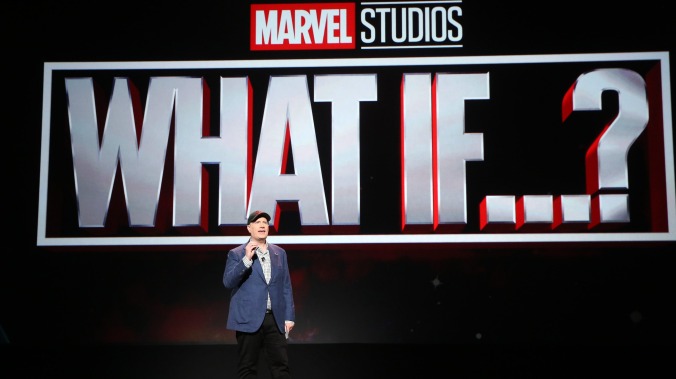Marvel’s TV experiment wasn’t a failure—until Marvel decided it was
In the wake of its Daredevil debacle, Marvel now wants to make its Disney Plus shows the way traditional TV networks do

In a surprising move for the generally confident and difficult-to-maneuver battleship that is Marvel Studios, the company today announced that it is going back to the proverbial drawing board on Daredevil: Born Again, its reboot (of sorts) of Netflix’s Daredevil series with stars Charlie Cox and Vincent D’Onofrio returning to reprise their roles as Matt Murdock and Wilson Fisk. Half of the show’s first season was mostly finished before the WGA strike put everyone on pause, and now head writers Chris Ord and Matt Corman (the duo behind USA’s Covert Affairs) have been let go, along with every director attached to the series.
This reportedly came after Marvel Studios boss Kevin Feige saw the first few episodes and wasn’t happy with what Ord and Corman had come up with, which was apparently a jokey legal show that didn’t involve Cox putting on the Daredevil suit until four episodes in. And now, in reaction to this and to how crummy Secret Invasion was, Marvel is apparently overhauling its entire TV development system by making it less like the movies and more like … television. That means hiring actual showrunners, writing actual pilot episodes, and mapping out potentially multiple seasons before actually making the thing, instead of envisioning the series as eight-hour TV movies that only exist to lay the groundwork for theatrical movies later on.
It’s tempting to interpret this as Marvel Studios finally recognizing its faults and acknowledging that its attempt to turn its Disney+ shows into stretched-out movies was a failure, but Marvel’s TV shows weren’t failures until Marvel decided they were failures—which is to say this thing happening right now—and it requires rewriting history to say that this is the problem and it has always been the problem.
Secret Invasion was a mess, with each episode feeling like it was simply moving pieces around on a board until they were in the spot they needed to be in order to make a predetermined plot point happen (so-and-so becomes a Super Skrull, so-and-so dies, and ultimately it doesn’t mean anything or go anywhere), but She-Hulk: Attorney At Law (the last Marvel show to come out before Secret Invasion) was fun and mostly operated within a traditional TV structure.
 Keep scrolling for more great stories.
Keep scrolling for more great stories.
